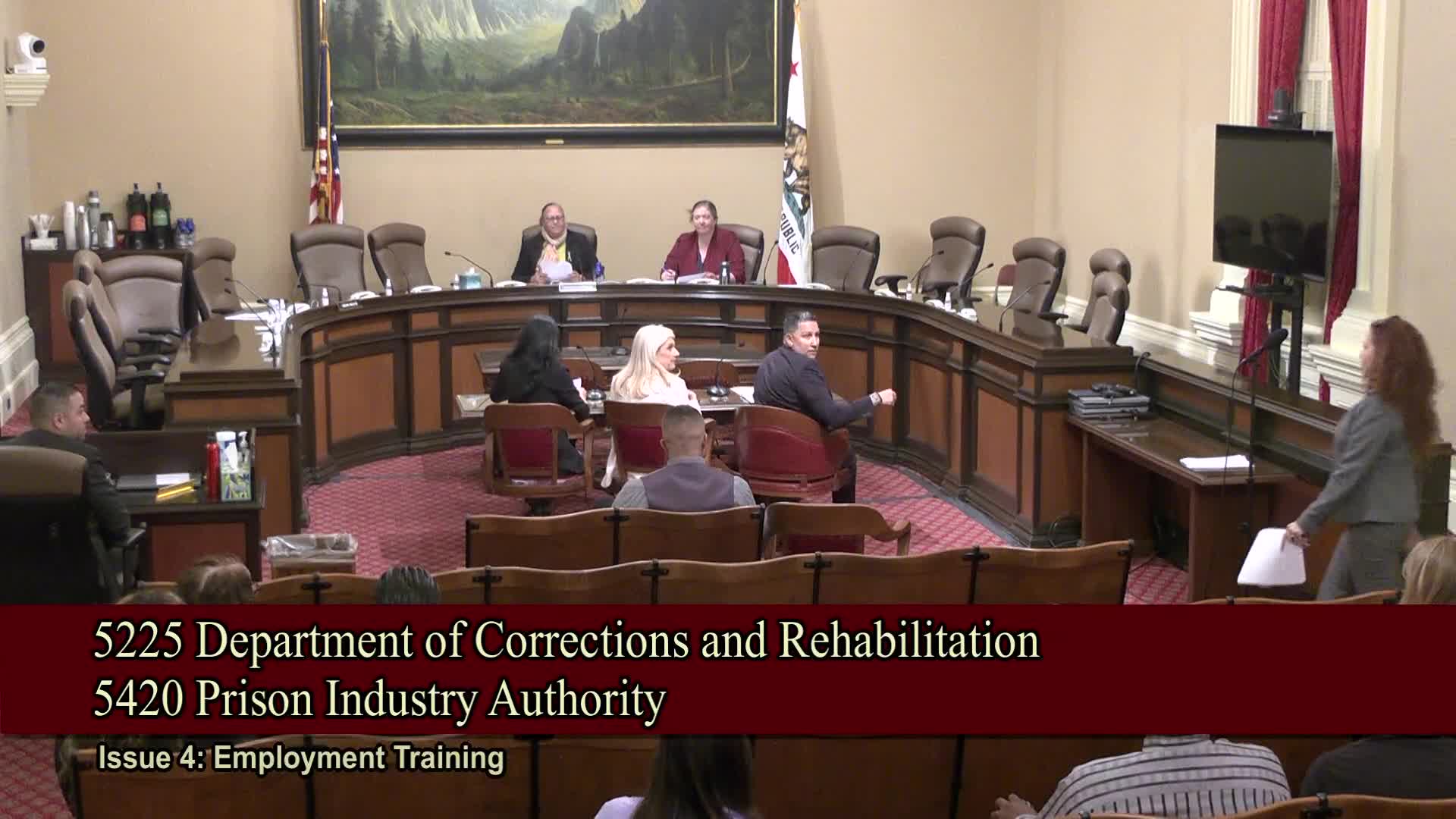CalPIA and CDCR describe job training, apprenticeships and pre-release hiring tools tied to lower returns to custody
Get AI-powered insights, summaries, and transcripts
Subscribe
Summary
CalPIA, CDCR education officials and reentry groups detailed industry‑recognized career training in prisons, apprenticeship pipelines and an entry-to-employment tool; UC Irvine analysis and program participants cited lower return-to-custody rates among program graduates.
CalPIA (California Prison Industry Authority), CDCR correctional education officials and reentry advocates told the Senate budget subcommittee about job training, apprenticeship pipelines and pre‑release employment tools they say increase successful reentry and reduce returns to custody.
Genevieve Candelaria, superintendent of correctional education in CDCR’s Division of Rehabilitative Programs, described career technical education (CTE) offerings and partnerships with CalPIA, California Community Colleges and other agencies. Candelaria said CDCR reported nearly 4,700 industry certifications in fiscal year 2023–24 and cited a preliminary recidivism finding that people with a CTE achievement had a 26 percent recidivism rate compared with 40 percent for those without CTE achievements.
Michelle Kane, CalPIA assistant general manager of external affairs, described CalPIA’s statewide job‑training enterprises—about 5,800 budgeted positions—and said UC Irvine’s evaluation of CalPIA programs found that three years after release just 15 percent of CalPIA participants had been returned to custody. Kane said CalPIA offers 128 nationally recognized certifications and operates construction, healthcare‑facility maintenance, commercial dive, braille, optical and other programs with industry partners and union collaborations; she said participation can include milestone completion credits (sentence reduction).
Dolores Oliveras (CalPIA) and other speakers described the E2E (Entry to Employment) network, which helps eligible participants apply for jobs before release through the EDD CalJOBS platform; CalPIA said E2E had been implemented at 23 institutions with 283 participants to date and full statewide deployment planned by May 19, 2025. Justin Ennis, a formerly incarcerated graduate of CalPIA who now works as a project manager for a commercial developer, described how CalPIA experience and employer endorsements helped him obtain work and advance to a salaried role.
Anti‑recidivism groups and apprenticeship‑readiness providers told the committee that construction trades and other career pathways have produced durable employment for many graduates but said challenges remain—securing IDs and work authorization documents, housing instability, and parole‑supervision requirements can delay entry to work. The subcommittee asked for follow-up materials and said it would use the testimony to inform budget decisions at the May Revision. No formal votes occurred during the informational session.
